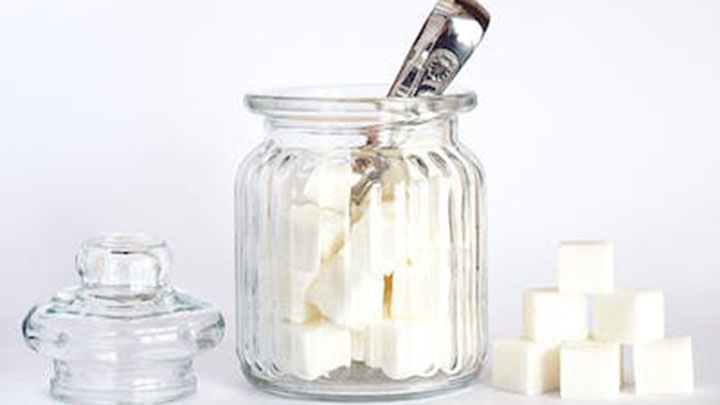
Sugar is a carbohydrate that gives your body fuel (calories) which can be used for energy. It also adds sweetness to foods. Most people prefer sweet tastes compared to other tastes like salty, sour or bitter.
Sugar is found naturally in foods. For example, fructose is the sugar found in plant foods like vegetables, such as yams or carrots and in all types of fruit. Lactose is the sugar found in milk and yogurt.
When you eat a food where the sugar occurs naturally, you also get other nutrients. For example, if you eat berries, you also get vitamin C, fibre and plant compounds that help you stay healthy.
The sugar from sugar cane, sugar beets, coconut palms or maple trees can be concentrated to sugar added to other foods. The most common sugar added to food is made from sugar cane or beets and is called sucrose. Other forms of added sugar are honey, maple syrup, corn syrup, agave syrup and molasses.
On the ingredients list on a food package, there are many words which also mean sugar.
Examples of words that also mean sugar:
The World Health Organization suggests adults should have no more than 13 tsp (50 g) of added sugar per day.
When foods with added sugar are eaten or drunk in large amounts, these foods may replace the healthier foods you eat. Adding sugar to foods adds calories without many other nutrients. Eating too much may affect your physical health and increases your risk of cavities.
Examples of foods high in added sugar:
At the grocery store:
At home and away from home:

Health Canada